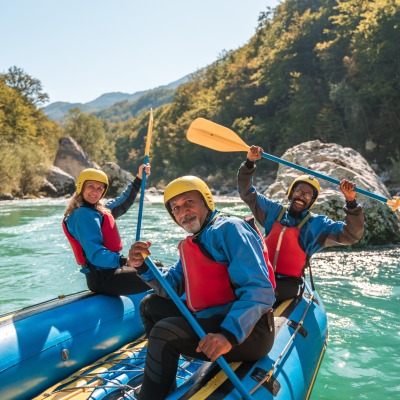Program Description

This certificate program has been designed for prospective students seeking opportunities or graduates seeking professional advancement in the tourism industry. Along with sustainability principles, it covers a range of policy objectives (such as urban and rural regeneration, wildlife conservation, climate change issues, understanding the built environment, ecotourism planning and outdoor recreation planning and management) within the context of programs for sustainable development. In doing so, it seeks to provide students with the skills and techniques to develop tourism policies and to manage tourism development and enterprises, towards more sustainable practices.
A non-degree professional certificate program following the same curriculum provides a strategic overview of responsible destination management along with practical applications. The certificate is designed for tourism professionals and career changers who want to advance their careers and take advantage of the increasing opportunities in the field. Participants will learn strategies and tools for recognizing and developing tourism products, creating visitor markets, minimizing the potentially negative effects of tourism and enhancing the sustainability of destinations so that they remain viable and attractive to visitors, and support their host communities.
What can you expect to gain from the program?
- Strategies to sustainably develop and manage tourism destinations
- Essential information on effective promotions, marketing and networking in the tourism industry
- Guidance on designing tourism policies and working with stakeholders
- Instruction on developing new tourism experiences and products
- An overview and introduction to key players in the field
- Understanding how to create/maintain a sustainable tourism business
- Provide learners with an understanding of corporate sustainability and sustainable practices in tourism development
This is an ideal program if you are:
- A student seeking a degree in a compatible field such as: dducation – interpretive programs for school groups and tours; history – museum studies, English – travel writing, hospitality, communications, marketing, accounting – for hospitality or tourism businesses, technology, sports or recreation, planning and urban studies and many more.
- Working in the tourism industry and would like to deepen your understanding of sustainability
- Interested in joining the sustainable tourism industry
- Starting or changing your career
- Planning to start your own sustainable tourism business

Completion time is three semesters and the curriculum offering is an undergraduate program level, designed to prepare individuals for leadership roles in tourism organizations looking to commit to sustainable practices. The program will provide learners with an understanding of corporate sustainability and sustainable practices in tourism development. More specifically, learners will study tourism community impacts, sustainable destination planning and management, and managing a sustainable tourism business while addressing global issues such as poverty, climate change, globalization/localization, and environmental degradation.
Program Objectives
Students will become leaders in sustainable tourism through:
- Understanding the role of sustainability in tourism business today, as it relates to corporate strategy, business operations, financial objectives, and social responsibility.
- Learning how to analyze relevant economic, social, and environmental data as applied to a wide range of corporate sustainability case studies from the travel industry.
- Examining strategies, policies and principles for sustainability in various tourism businesses (hotels, resorts, restaurants, travel agencies, events, natural areas, parks, etc.).
- Identifying and applying intervention strategies to mediate tourism development impacts.
- Analyzing plans, policies, and approaches being currently used to guide sustainable tourism development within multiple contexts.
- Identifying challenges, weaknesses, and strengths of the tourism industry within different geo-cultural contexts.
- Recognizing socio-cultural, environmental and economic impacts of travel and tourism at the individual, community, and greater society levels.
- Learning and applying the principles of sustainable development in case study contexts.
Contact Us
For more information, contact the School of Continuing and Professional Studies, or Professor Lorri Krebs, geography and sustainability.
School of Continuing and Professional Studies
352 Lafayette St.
Salem, MA 01970
